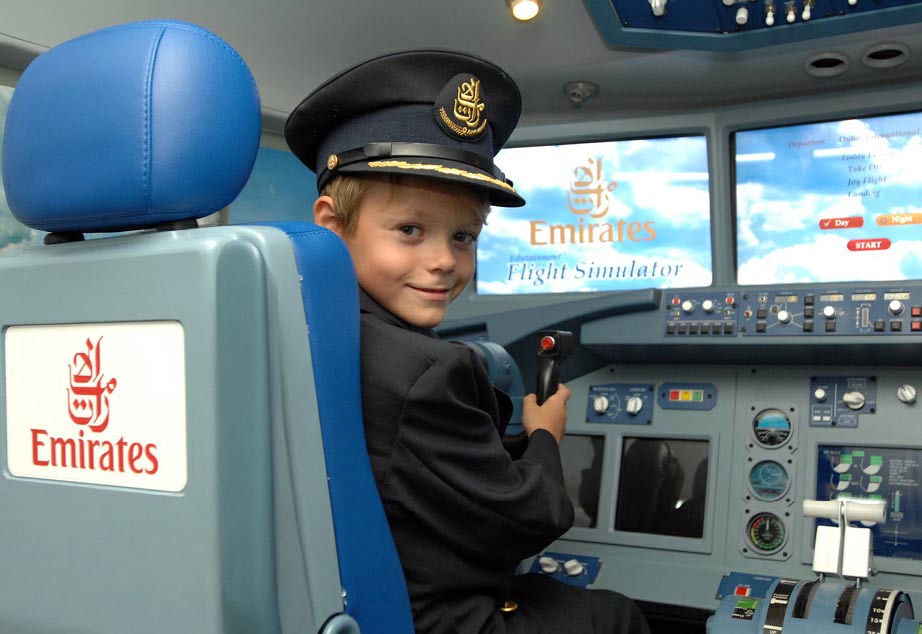- Early aviation education cultivates critical skills in children, preparing them for future aviation careers.
- The use of interactive tools, visits to aviation events, and storytelling can enhance children’s aviation learning.
- Parental involvement and regular communication can significantly influence a child’s interest in pursuing an aviation career.
- A memorable school experience, like awarding junior pilot wings and arranging field trips, keeps children’s aviation dreams alive.
Initiating aviation training early in childhood paves the way for a successful and fulfilling aviation career. Encouraging children to explore the wonders of flying cultivates their interest in aviation and instills essential skills such as precision, responsibility, and quick problem-solving. According to the Federal Aviation Administration (FAA), the demand for airline pilots in the United States is projected to grow 4 percent until 2032. This demand and a looming pilot shortage – Boeing anticipates a need for 804,000 new civil aviation pilots over the next 20 years – underscores the importance of engaging children in aviation early on. Fostering this interest early on ensures a steady and well-prepared stream of pilots ready to meet the aviation industry’s demands.
As a result, aviation schools must do their best to assist and motivate children in achieving their aviation dreams. Here are a few tips to help children reach their aviation dreams.
Begin with Basic Education
Primary education in aviation lays a strong foundation for children interested in this field. It introduces them to fundamental concepts, such as the principles of flight, the mechanics of aircraft, weather patterns, and aircraft navigation. This knowledge keeps them engaged and fuels their curiosity, pushing them to delve deeper into the world of aviation. Still, kids might need to stay interested, making these strategies essential:
Use Interactive Learning Tools

Interactive learning tools like flight simulations and model airplane kits can make learning more enjoyable for kids. Flight simulations, for instance, can help children understand flight dynamics in a safe and controlled environment. On the other hand, model airplane kits foster hands-on learning, allowing kids to grasp the intricacies of aircraft design.
Plan Visits to Aviation Museums and Air Shows
Air museums and air shows provide engaging, real-world experiences for children to understand aviation. Encountering real airplanes and experiencing flight demonstrations can spark children’s imagination and further their passion for aviation. These visits also allow children to interact with pilots and other aviation professionals, enhancing their knowledge and understanding of the field.
Incorporate Storytelling
Storytelling can be an effective strategy in teaching aviation to children. Stories about pioneers of flight, famous aviation incidents, or technological breakthroughs in aviation can inspire children and keep their interest piqued. It also helps contextualize abstract aviation concepts, making them more understandable for young learners.
Stay Connected with Parents
Parents play a pivotal role in guiding their children’s career aspirations. Hence, maintaining a solid connection with them can significantly aid in attracting more children toward aviation. Regular communication with parents enables them to understand the benefits and opportunities in the aviation sector, and they can motivate their children to explore a career in this field. Here are three strategies to engage parents:
Arrange Regular Parent-Teacher Meetings
Regular parent-teacher meetings offer an excellent opportunity to update parents on their child’s progress and interest in aviation. During these meetings, educators can discuss the benefits of an aviation career and provide insights into the child’s performance and aptitude in aviation-related subjects.
Host Family-Friendly Aviation Events
Organizing family-friendly aviation events such as open days, workshops, and presentations can keep parents engaged in their children’s learning journey. These events can showcase the exciting aspects of aviation, educate parents about the industry, and highlight the opportunities available to their children in this field.
Implement a Parent Involvement Program

A Parent Involvement Program encourages the active participation of parents in their child’s aviation education. This can involve facilitating parents to assist in aviation-related activities, workshops, or school projects. Such hands-on involvement can deepen parents’ understanding of the field, enabling them to support and encourage their child’s ambition to pursue an aviation career.
Make the School Memorable for Kids
Creating a memorable aviation school experience is critical in keeping children focused on their aviation career path. Schools that provide a stimulating and nurturing environment can leave a lasting impression that fuels a child’s passion for aviation even beyond the classroom setting.
One way to achieve this is through custom-made junior pilot wings. These serve a dual purpose: they act as a symbol of achievement, fostering a sense of accomplishment in students and as a constant reminder of their aviation dreams. Every time children look at their junior pilot wings, they are reminded of their aspirations and the steps they are taking toward their future careers. This tangible memento can play a crucial role in motivating them to persist on their journey towards becoming pilots.
Another strategy is to arrange field trips, where students can visit airports and interact with pilots, air traffic controllers, and other aviation professionals. Such experiences create a sense of realism and excitement in children as they glimpse the daily lives of those working in aviation.
Final Thoughts
Engaging children in aviation early on can lead to a fulfilling and successful career for them in the future. Aviation schools play a crucial role in making this happen by providing quality education, fostering interest and passion, staying connected with parents, and creating memorable student experiences. Through these efforts, they can help young aviators reach their dreams of soaring through the clouds.
